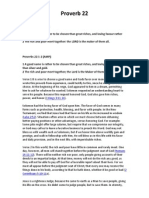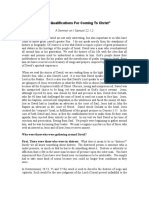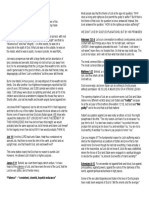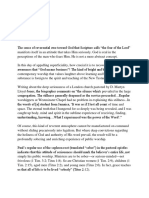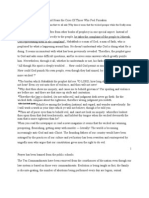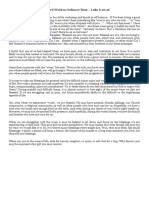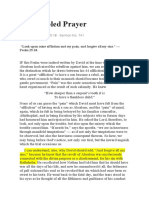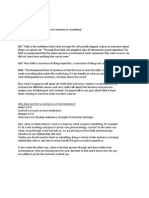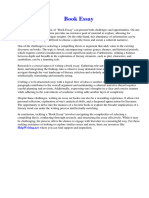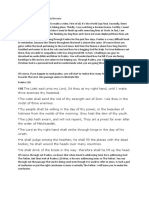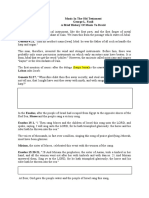0% found this document useful (0 votes)
54 views8 pagesAffliction
The document discusses the question of why the godly suffer, emphasizing that affliction can lead to spiritual growth and a deeper understanding of God's statutes. It uses the example of King David and Job to illustrate how suffering can teach experiential knowledge of faith and prayer. The author shares personal experiences of learning to depend on God during illness, highlighting that afflictions can serve a greater purpose in one's spiritual journey.
Uploaded by
richard baliliCopyright
© © All Rights Reserved
We take content rights seriously. If you suspect this is your content, claim it here.
Available Formats
Download as DOCX, PDF, TXT or read online on Scribd
0% found this document useful (0 votes)
54 views8 pagesAffliction
The document discusses the question of why the godly suffer, emphasizing that affliction can lead to spiritual growth and a deeper understanding of God's statutes. It uses the example of King David and Job to illustrate how suffering can teach experiential knowledge of faith and prayer. The author shares personal experiences of learning to depend on God during illness, highlighting that afflictions can serve a greater purpose in one's spiritual journey.
Uploaded by
richard baliliCopyright
© © All Rights Reserved
We take content rights seriously. If you suspect this is your content, claim it here.
Available Formats
Download as DOCX, PDF, TXT or read online on Scribd
/ 8

